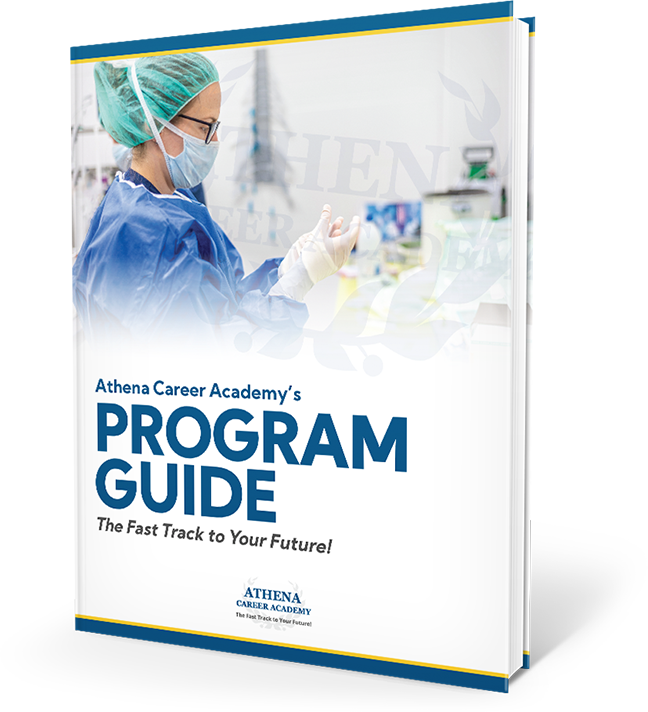Choosing Between Online and On-Campus for Your Medical Assistant Training: A Comparative Guide
Posted On Oct 4, 2023
The decision to begin training for a career as a medical assistant is an important one, and one of the first choices you'll face is whether to pursue your training online or on-campus. Both options offer unique advantages and considerations, but in this comprehensive guide, we will focus on the numerous benefits of on-campus medical assistant training, highlighting the various aspects that make it an attractive and effective choice.

On-Campus Medical Assistant Training: A Closer Look
Structured Learning Environment
On-campus medical assistant training provides students with a structured and supportive learning environment. The physical presence of a classroom setting offers a sense of organization and stability. For those who thrive on direct interaction with instructors and peers, this type of program can be incredibly beneficial.
In a classroom, you have the opportunity to engage with instructors, ask questions, and participate in discussions in real-time. This level of interactivity fosters a collaborative learning experience that can enhance comprehension and retention of the learning material.
Hands-On Experience
Perhaps one of the most significant advantages of on-campus training is the extensive hands-on experience it offers. Medical assistant work is inherently practical, involving duties such as taking vital signs, assisting with minor surgical procedures, and administering injections.
On-campus programs often provide access to state-of-the-art equipment and facilities designed to simulate real-world medical environments. This hands-on approach ensures that students are well-prepared for the clinical aspects of their role, and can serve as an advantage when entering the workforce. As a result, graduates of on-campus programs feel confident in their ability to perform their job duties.
Networking Opportunities
On-campus programs provide excellent networking opportunities. By physically attending classes and interacting with instructors, fellow students, and professionals already working in the healthcare field, you have the opportunity to establish valuable connections. These connections can be instrumental in finding your first job, internships, and mentorships within the medical field.
The healthcare industry places a significant emphasis on networking and building relationships. By engaging with peers and instructors on-campus, students can access valuable resources, advice, and potential career opportunities that might not be as readily available in an online learning environment.
Structured Schedule
On-campus programs follow a fixed class schedule, which can be seen as both an advantage and a constraint. For students who appreciate a disciplined approach to learning and thrive in a structured environment, this set schedule can provide a reliable framework for their academic and personal life.
A consistent class schedule helps students plan their time effectively, ensuring they allocate enough hours for studying, assignments, and any other personal or work commitments. The reliability of an established timetable can be especially appealing for those who prefer a more predictable routine.
Enhanced Accountability
The physical presence of an on-campus class fosters a sense of accountability. Students are part of a community, interacting with classmates and instructors on a regular basis. This sense of shared responsibility can motivate students to stay on track with their coursework, attend classes regularly, and actively participate in discussions and group activities.
Accountability is a powerful motivator, helping students maintain focus and commitment to their studies. Knowing that peers and instructors rely on your presence and participation can be a compelling force that drives success.
Quality Interactions
In-person training allows for direct, face-to-face interactions that foster a sense of community and camaraderie. Collaborating with classmates and instructors can lead to a richer educational experience and a deeper understanding of the skills you’ll learn.
Interactions in the classroom often extend beyond the curriculum. Students can exchange ideas, share experiences, and build professional relationships that may last well beyond their time in the program. This can enhance the overall quality of the educational experience, as students learn not only from instructors but also from each other.
Rich Resources
Many on-campus programs provide access to comprehensive libraries, laboratories, and other resources that can support your educational journey. These resources are invaluable for research, coursework, and hands-on practice.
Libraries are stocked with relevant textbooks, reference materials, and research articles, providing students with a wealth of information to support their studies. In addition, laboratories are equipped with the necessary tools and equipment for students to practice and refine their clinical skills. Access to such resources on campus can significantly aid in the learning process.
Weighing Your Options
When deciding between online and on-campus medical assistant training, it's essential to carefully evaluate your personal preferences, needs, and career goals. Here are some factors to consider:
- Learning Style: Assess how you learn best. If you thrive in a structured classroom environment with hands-on experience, on-campus training may be more suitable. If you need more flexibility in your schedule, online training could work better for you.
- Cost and Budget: Evaluate your financial situation and the overall cost of the program. Online programs often offer cost savings, but consider the value of hands-on experience provided by on-campus training.
- Time Commitment: Determine how much time you can dedicate to your training. Online programs offer greater flexibility, while on-campus programs may require a more fixed class schedule.
- Career Goals: Consider your long-term career goals and how each type of training aligns with them. Research the requirements of medical assistant positions in your area to ensure your training choice meets those needs.
On-campus medical assistant training offers numerous advantages, including a structured learning environment, extensive hands-on experience, immediate feedback, networking opportunities, accountability, enhanced interactions, and access to many resources.
These benefits contribute to a more comprehensive and fulfilling educational experience. When considering your medical assistant training options, it's a good idea to weigh these advantages against your personal circumstances and career goals. Your choice should align with your individual needs and aspirations, setting you on the path to a successful and rewarding career in healthcare. To learn more about our comprehensive, in-person medical assistant training program, or to get details on how to enroll, contact Athena Career Academy today!
Recent Posts
- How Accessibility to Faculty Enhances ECE Degree Program
- Early Childhood Education Courses Lead to Great Teaching Careers
- Insights for Effective Preschool Teaching
- Online vs. In-Person Medical Assistant Training: Which Is Right for You?
- Preschool Teachers Provide Hands-On Learning for Future Innovators
Categories
- Flexible Class Schedule
- Early Childhood Education
- Clinical Medical Assistant
- Medical Assistant
- Accredited
- Medical Assistant Program Toledo, OH.
- MA Program
- ECE
- preschool teacher
- CMA
- Administrative Medical Assistant
- Practical Nursing
- Nursing School
- Nursing
- Early Childhood Education Degree
- LPN to RN
- Certified Medical Assistant
- Early Childhood Educator
- Become a Teacher
- Nursing Career
- RN
- Childcare Teacher
- Nursing School Toledo
- Practical Nurses
- Childcare Director
- Nursing Education
- Registered Nurse
- LPN
- Toledo Ohio Nursing School
- Teaching Degree
- Become a Nurse in 12 Months
- Nursing Career Opportunities
- Nursing School Preparation
- Practical Nursing Jobs
- Medical Coding and Billing
- DayCare Teacher
- Nursing Salaries
- Nursing School Costs
- PN to RN
- Career Training
- Nursing School Tuition
- Nursing School Financial Aid
- Phlebotomist Technician
- Practical Nurse Salaries
- EKG Technician
- nurse burnout
- #nursesunite
- Insider
- Phlebotomy Technician Salary
- Uncategorized
- resume
Contact us
For News, Resources, and Conversations:
Get your FREE 2022 Athena Career Academy Program Guide
The best way to get to know Athena Career Academy is to see what we offer. Download our program guide to learn more. Take the fast track to your future today!
An exciting career can be yours in just one year!
Discover how Athena Career Academy can help you reach your medical career goals fast.
Accrediting Agencies
Athena Career Academy is accredited by the Commission of the Council on Occupational Education. The school is registered with the Ohio Board of Career Colleges and Schools; State of Ohio – School Registration Number – 10-09-1943T and operates under the authority of the Ohio Board of Nursing. Please contact the Student Operations Manager for more information.


